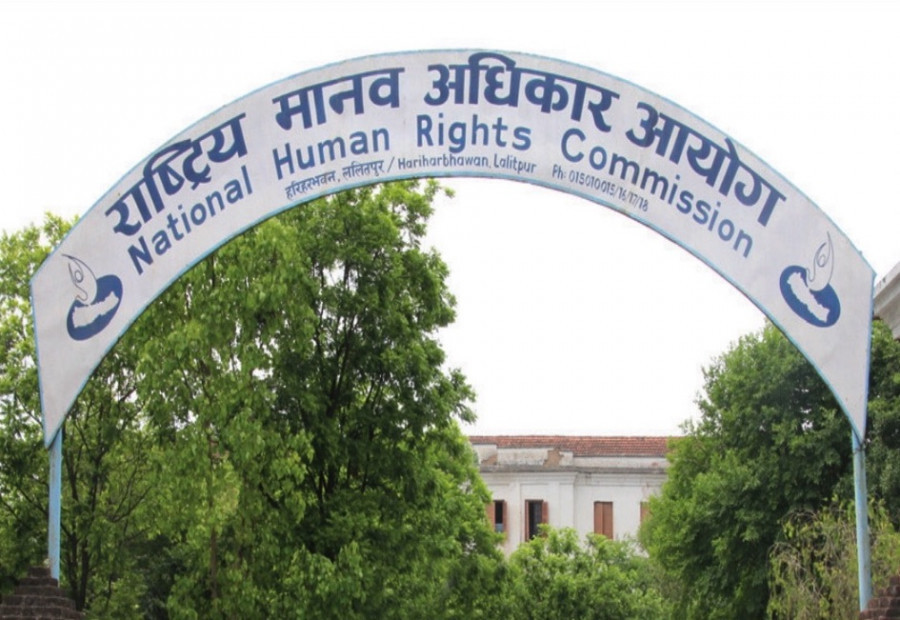National
Global alliance to wait for court decision before deciding on rights watchdog’s status
National Human Rights Commission could lose ‘A’ status if appointments made in it through ordinance are found unconstitutional.
Binod Ghimire
The Global Alliance of National Human Rights Institutions has rejected the claim of the National Human Rights Commission that its chairperson and members were selected abiding by Nepal’s international obligations.
The alliance, an umbrella body of national human rights institutions from 127 countries, on October 28 conducted a review on the “A” status of the constitutional human rights watchdog following complaints that the appointments of its chairperson and members were done flouting the domestic laws and the Paris Principles.
President Bidya Devi Bhandari on February 3 appointed the chair and four commissioners to the National Human Rights Commission (NHRC) based on the recommendations from the Constitutional Council. The council recommended them after a controversial amendment to the Constitutional Council (Functions, Duties, and Procedures) Act through an ordinance on December 15 last year.
Their parliamentary hearing couldn’t take place as then prime minister KP Sharma Oli on December 20 dissolved the House of Representatives. They were appointed as per the regulations of the federal parliament which said those whose hearing cannot be conducted within 45 days of recommendation will get an automatic appointment.
At least half a dozen writ petitions challenging the ordinance, recommendations of the council and the appointments are pending in the Supreme Court. The Subcommittee of Accreditation of the alliance has said though it acknowledges the claim from the commission that that the appointments were done as per Articles 248 and 292 of the Constitution of Nepal and in line with the ordinance issued by the President, it is concerned about the appointment process.
“The subcommittee remains concerned that the appointment process of the current members of the commission did not meet the requirements of the Paris Principles and could adversely impact the actual and perceived institutional independence of the commission as well as threaten the stability of the institution into the future,” reads the decision of the subcommittee. “Therefore, it deferred its review of the commission, pending the decision of the Constitutional Bench of the Supreme Court on the legality of the recent appointments.”
Adopted in 1993 by the United Nations General Assembly, the Paris Principles set six criteria that national human rights institutions need to follow. These include autonomy from the government and the independence guaranteed by the constitution besides adequate competence, pluralism and the availability of resources and powers to carry out investigations.
The review will be conducted in June next year and decide whether to downgrade the “A” status of the constitutional human rights watchdog. The subcommittee further said that it is critically important to ensure the formalisation of a clear, transparent, and participatory selection and appointment process for the human rights institution’s decision-making body in relevant legislation, regulations or binding administrative guidelines, as appropriate.
Downgrading of the national human rights commission signifies a dwindling human rights situation and lack of independence of the rights watchdog. “The alliance has been given a year to correct the appointment process,” Bed Bhattarai, a former secretary at the commission, told the Post. “It is highly likely that the commission will lose the present status if the present appointment is not rectified.”
Former Supreme Court justice Top Bahadur Magar is the chair of the commission while Surya Dhungel, Mihir Thakur, Manoj Duwady and Lily Thapa are its members.
In its review, the alliance has recommended publicising vacancies broadly, maximising the number of potential candidates from a wide range of societal groups and educational qualifications, and promoting broad consultation and participation in the application, screening, selection and appointment process. It also has suggested assessing applicants on the basis of predetermined, objective and publicly available criteria and selecting members to serve in their individual capacity rather than on behalf of the organisation they represent.




 13.12°C Kathmandu
13.12°C Kathmandu














